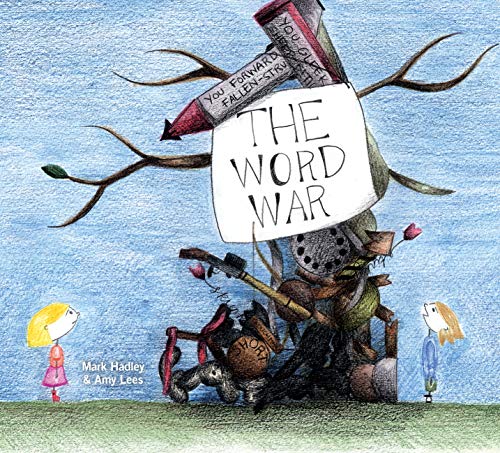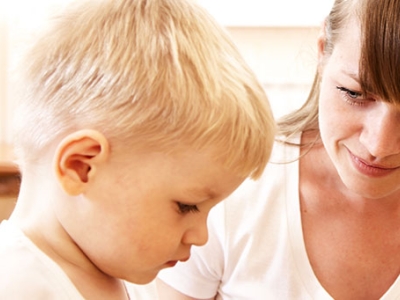
Parenting big feelings: a gospel opportunity
Our feelings are a good gift—not to be ignored, but examined before God.
You don’t have to be a parent very long before you discover that little kids have BIG feelings. The screams of rage when their brother snatches a toy. The huge sobs when they get the orange plate instead of the blue. The unsurpassed joy when handed an ice cream cone. Kids feel things big.
These days you can read dozens of parenting books or follow hundreds of Instagram accounts that will emphasise how important it is that children are allowed to feel their feelings. The mantra goes that all feelings are OK, even if all behaviours are not. And displaying any parental disapproval for a demonstration of feelings will result in long-term psychological problems.
However, parenting advice nearly always reflects something of the prevailing worldview of our age. What is it that our world today wants to tell us about feelings?
Being true to yourself
It seems a major message in our world today is that your feelings are one of the most important things about you. Feelings are to be affirmed and encouraged. Our greatest good is to act in a way that is authentic and true to ourselves. We are most harmed when our feelings are not considered or validated by others. We are trained to give full rein to our emotions and to be governed by our feelings. I loved this quote from Sam Allberry on a recent podcast from the Centre for Christian Living: ‘In our culture, the hero today is not the person who risks his body for the sake of others, but the person who lays aside anything and anyone for the sake of being authentic. We most esteem not self-sacrifice, but self-expression’.
This high view of feelings has infiltrated how we parent. To not support our children in their feelings is seen as tantamount to abuse. Some of these ‘experts’ will teach that by not allowing children to feel and express anger we send the message they are only loved if they are happy. Mental health problems later in life is the expected result. Even obedient children are seen as a problem: they have simply been forced to push their feelings and needs down. Bad behaviour is redefined as an unmet need or unexpressed emotion.
Children’s picture books have been written expounding this approach. One series is called Follow your feelings. Another I read contained this quote: ‘Everyone is different and their feelings aren’t the same and what you feel is who you are, it’s something you must claim’.
So how do we come to think about this as Christian parents? What is the place of feelings in the life of our children? Where does teaching self-control or understanding that all humans are born with a sinful nature fit into this picture?
A biblical view of feelings
Firstly, it’s important to recognise that emotions are a good gift from God. He made us to feel. They play a necessary purpose in our lives. God himself feels both positive and negative emotions. He is described in the Bible as being angered, pleased, rejoicing; we see Jesus weeping, being moved with pity and having compassion on the crowds. We, being made in God’s image, also feel a huge range of emotions. And these are a good gift that brings richness and colour to life.
However, since the fall of humanity, our emotions (along with every part of the human experience) are marred and disfigured by the arrival of sin. The emotion in and of itself isn’t sinful, but it can arise out of a place of sin.
Take anger as an example. We can feel anger when we read a news story about a child who has been horrifically abused. That is a right and proper response to injustice and cruelty. Alternatively, we can feel anger when our restful moment quietly scrolling the news on our phone is disrupted by an argument between siblings. This anger arises because we’re valuing our own peace and comfort above the responsibility we have to parent. Likewise with positive emotions, we can rightly feel joy when a friend who has been trying to conceive discovers she is finally pregnant. This arises from our love for our friend. Or we could also feel joy when someone we dislike at work misses out on a promotion. This joy arises from a place of sin.
Our feelings tell us something about ourselves. They show us what we are treasuring or valuing; they point us to the state of our hearts. As such, being aware of our emotions, examining them and holding them up to the light of the Bible is an important thing for the Christian to do. When we come to God with our feelings—and the beliefs and values that lie behind them—we can find the help we need to deal with our wayward hearts.
Teaching kids to examine their feelings
It is this understanding of feelings we want to bring to our parenting. To state that all feelings are OK will sweep over the fact that often our feelings arise out of sin. Encouraging children to think that our feelings are the sum of who we truly are and should be given the controlling influence in our lives will only lead them to a life of slavery to their feelings. But ignoring or seeking to suppress feelings in our kids without teaching them to examine what lies behind them wastes a huge opportunity to point them to the sin in their hearts and their need for a saviour. Our kids’ feelings help us to teach them the gospel.
It's a valuable thing to help our kids identify and label their feelings. We can say something like ‘I see you are feeling angry because your brother has the toy you want’. But rather than ‘OK’ the emotion by saying ‘It’s OK to feel angry’, let’s use the opportunity of discipline to point our kids to their need for a saviour. This could be a chance to highlight the fact that their anger has arisen from a place of greed or selfishness and a lack of love for their brother. We can talk about the obedience we are called to, and the self-control we are given as a fruit of the Spirit that will help us put to death our sinful anger.
When doing this it’s helpful to remind our kids that we struggle with anger too, and when we do, we can confess it to God who will always forgive us when we come to him in repentance. Because we know ourselves to be forgiven sinners, we will do this in a gentle and understanding way that also considers age-appropriate expectations for our kids.
Younger children may need our help to calm down first, before we can have this kind of conversation with them.
This works for positive emotions as well. When we witness our child smile after giving a pretend cup of tea to their grateful dad, let’s celebrate the good emotions. We can say ‘I love to see how joyful giving Daddy that tea made you. Isn’t it great how God made it a joy for us to give to others?’. You are training your child to notice the delight that living God’s way brings.
Our feelings are part of the way both we and our kids are made. They are a good gift. They are not to be ignored but examined before God. They are not the whole truth about us, but they can point us to what we treasure and love. So let’s take the opportunity to teach our kids to identify their feelings and examine them in the light of the gospel. We can encourage them with Paul's words:
... those who belong to Christ Jesus have crucified the flesh with its passions and desires. If we live by the Spirit, let us also keep in step with the Spirit. (Galatians 5:24–25)
---
Jocelyn Loane is married to Ed, and together they have five children. They have been serving in full-time ministry in a variety of contexts since 2008. They are a part of Naremburn Cammeray Anglican Church.

The Word War
Lucy and Zac were the best of friends … until a war of words—silly, thoughtless words—began to fire from both sides.Such words are powerful weapons that can wound and anger the people we care about. But ultimately, Lucy and Zac realise that one particular word, ‘sorry’, when coupled with its response ‘I forgive you’ can break down any barrier.
For more articles from Growing Faith, subscribe to our monthly e-newsletter.
To hear about the latest books and resources from Youthworks Media, subscribe here.








